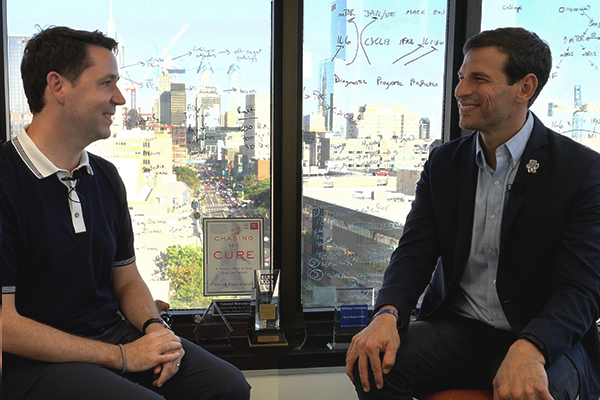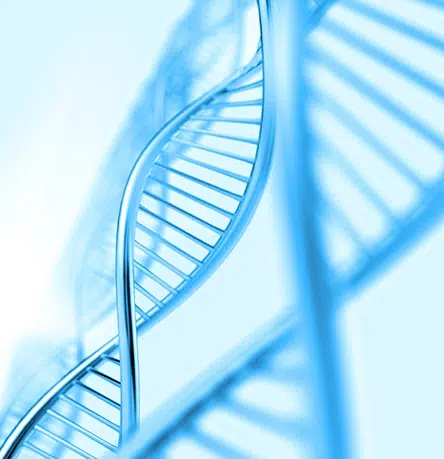
Since the advent of modern medicine, the scientific community has developed more than 3,000 drugs for thousands of diseases. Despite significant progress, there are more than 6,500 rare diseases without a single approved treatment.
We recently partnered with Every Cure, a nonprofit organization, to help them advance their mission of unlocking the full potential of every existing medicine to treat as many diseases as possible — with a specific focus on rare diseases. As a provider of end-to-end clinical development solutions, we plan to leverage our expertise to refine drug-disease matches identified by Every Cure’s use of AI and data analysis.
“There are so many patients suffering from diseases that have no treatments. At the same time, there are all these treatments that are approved for certain diseases, but the work hasn’t been done to figure out if any of these approved drugs work for any of the patients that are suffering right now. AI allows us to do just that,” says Dr. David Fajgenbaum, co-founder of Every Cure.
At Worldwide, we deliver full-service clinical development to support drug approval and commercialization. We are committed to supporting reimbursement and exploring ways to increase patient access to treatments.
“We thought, thousands of drugs haven’t been researched for thousands of other indications, so how can we disrupt the model? How can we look at things through a different lens and use the same platform, infrastructure, and team but try to find a novel pathway to drug approval for other patients? Partnering with Every Cure gave us the answer,” says Derek Ansel, Wordwide’s Executive Director, Therapeutic Strategy Lead, Rare Disease.
A Non-Traditional Pathway to Approval
Every Cure was established after Dr. Fajgenbaum’s own encounter with a rare disease. As a third-year medical student training to be an oncologist, Dr. Fajgenbaum suddenly became very sick and was eventually diagnosed with Castleman’s disease. With no approved treatment for this rare disease, he nearly lost his life on five separate occasions.
Dr. Fajgenbaum was determined to live, so he set out to leverage his limited medical training, scouring existing research literature and studying his body to find a treatment. He discovered an overactive pathway in his immune system and, with the help of his oncology team, began testing a drug approved for organ transplant rejection that could address the pathway. Dr. Fajgenbaum has since been in remission for more than nine and a half years, during which he co-founded Every Cure to explore the further possibilities within pre-existing medicines to treat patients without treatment options.
Rather than partnering with sponsors who focus only on a few compounds for a few diseases, Every Cure uses AI and large datasets that are not tied to one drug asset.
“We’re leveraging a number of artificial intelligence algorithms that have been developed from millions of dollars of NIH funding. A lot of effort has gone into these—and we are combining them, evaluating them, and generating new models to predict how likely every approved drug is to treat every known condition,” says Dr. Fajgenbaum.
With approximately 3,000 drugs and 20,000 diseases, this dataset presents more than 60 million possible drug-disease combinations. Understandably, evaluating the potential of every matched possibility is not feasible. Instead, Every Cure plans to utilize AI to determine which combinations are most likely to be successful. In partnership with our experts, Every Cure will prioritize the list by considering unmet medical need, drug accessibility, disease severity, and other relevant factors. Worldwide will then run the clinical trials for the repurposed assets, leveraging our extensive clinical trial experience and relationships with thousands of sites and clinical experts all over the world.
How This Model Complements Traditional Clinical Development
In traditional development, sponsors dedicate around a decade and millions, if not billions, to develop a treatment. Due to the high development cost, sponsors must understandably choose their assets to develop based on commercial viability, among other factors. For many rare disease patients, this reality leaves them with little chance of receiving treatment through the traditional route anytime soon—or ever. In contrast, as a nonprofit organization, Every Cure can prioritize assets with the greatest opportunity for impact, filling the treatment gap that many traditional drug developers are not positioned to fill.
“The most exciting thing we are doing here, to me, is instead of saying, ‘I have a drug, I want to find out what disease it works for,’ or ‘I have a disease, and I want to find a drug for it,’ we get to take a systematic look and ask, ‘what is the best thing for humanity?’ It’s amazing to be in the position to do that,” says Dr. Fajgenbaum.
Further, when a sponsor’s program fails to produce the data needed to establish efficacy in a population, sponsors are often forced to shelve the program. The years of work put in by the sponsor, patients, and clinical development professionals operationalizing the program are lost as they turn to developing more promising assets.
In the current clinical landscape, it’s uncommon for sponsors to share proprietary data when products are shelved, but that data holds untapped potential. If sponsors were to make their data accessible, nonprofits like Every Cure could use that data to potentially find a better disease match for the failed product. The possibility of increased data sharing and expanding failed programs to new indications is exciting, particularly for patients and those who have spent years working on these compounds.
Looking Towards the Future of Drug Repurposing
Every Cure and Worldwide’s partnership creates the means to drive faster and more innovative drug development with the goal of giving patients quicker access to drugs that are already available. By leveraging existing data, the development timeline can be shortened, collecting only the data regulatory bodies require for approval in the identified population and payers need for reimbursement.
To undertake a goal of such massive scope, Every Cure’s use of AI and partnership with Worldwide will play a critical role in the success of their drug repurposing efforts. We hope this partnership inspires other stakeholders to explore novel means to increase access and drive faster approvals.
As we begin our efforts to help filter Every Cure’s algorithm of drug-disease matches, we look forward to bringing these assets into clinical trials and encouraging the industry to reframe the traditional mindset around drug development.
To learn more about drug repurposing, read our white paper, The Utility of Drug Repurposing in Orphan Disease Research , and check out Every Cure’s website to discover more about their work. To learn more about the Every Cure and Worldwide partnership, listen to a recent podcast episode between Dr. Fajgenbaum and Derek Ansel.


